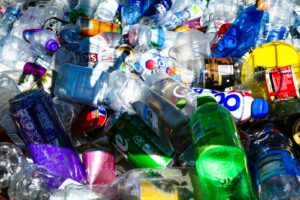PPE can be turned into a renewable liquid fuel
Plastic waste from used personal protective equipment (PPE) could be transformed into renewable liquid fuel, according to a new study published in the journal Biofuels.
PPE is designed to be used once and then thrown away, but once these materials are disposed of they then end up in landfills or oceans where they will then take decades to decompose.
Therefore, researchers from the University of Petroleum and Energy Studies have suggested that turning the waste into a renewable fuel could be an effective way to mitigate the problem of dumped PPE.
The study outlines that PPE can be converted into fuel using pyrolysis. This is a chemical process for breaking down the plastic at high temperatures – between 300-400 degrees centigrade an hour – without oxygen.
Lead author of the study, Dr Sapna Jain said: ‘The transformation of PPE into biocrude, a type of synthetic fuel, will not just prevent the severe after-effects to humankind and the environment but also produce a source of energy.
‘Presently, the world is focusing to combat COVID-19, however, we can foresee the issues of economic crisis and ecological imbalance also.
‘We have to prepare ourselves to meet the challenges which are forcefully imposed by the COVID-19 pandemic, so as to maintain sustainability.’
Co-author of the study Dr Bhawna Yadav Lamba added: ‘Pyrolysis is the most commonly used chemical method whose benefits include the ability to produce high quantities of bio-oil which is easily biodegradable.
‘There is always a need for alternative fuels or energy resources to meet our energy demands. The pyrolysis of plastics is one of the methods to mitigate our energy crisis.
‘The challenges of PPE waste management and increasing energy demand could be addressed simultaneously by the production of liquid fuel from PPE kits. The liquid fuel produced from plastics is clean and have fuel properties similar to fossil fuels.’
Photo Credit – Pixabay















